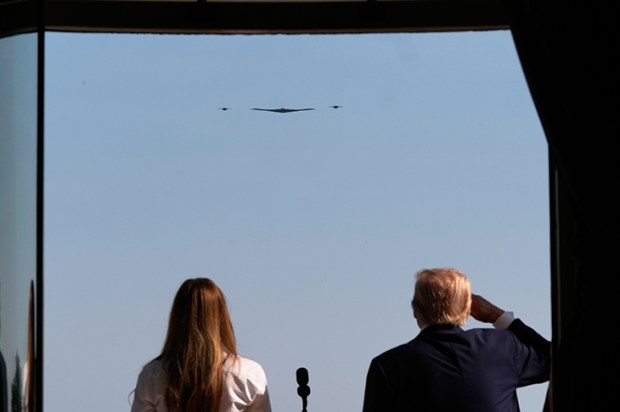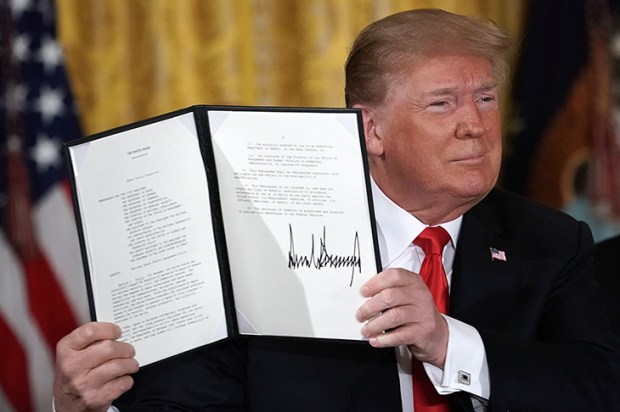I have long favoured the complete elimination of the foreign aid industry but failed to make much headway in persuading my former colleagues at the United Nations who all remained convinced that my views were sacrilegious. But allow me to explain.
Major power foreign policy tools include carrots and sticks to coerce and reward countries into behaviour better aligned with their preferences. Economic tools can be used either for domestic and/or foreign policy goals. Sanctions are the most common coercive economic tool. Tariffs are most commonly associated with domestic policy goals: to raise revenue, decouple from a potentially hostile partner like China to a Quad partner like India by shifting critical supply chains, protect domestic industry, etc. Non-tariff barriers too can be used for domestic protection. China has shown for many decades, and now Trump is, that tariffs can also be used as a negotiating instrument in foreign policy. The most common type of economic inducement in foreign policy is foreign aid. This is less charity and more a policy tool of, by and for donor country geopolitical and commercial interests. Often, substantial portions of aid are tied to overpriced goods and services from the donor country and eaten up by consultants who must be hired from donor countries.
Foreign aid does only four things very well. It confiscates hard-earned money from regular taxpayers in rich countries and transfers it to corrupt rulers and rich people in poor countries. It subsidises industries in donor countries that are uncompetitive on price and quality in the international marketplace. It provides an alibi for self-inflicted harms by recipient countries through production and trade policies like subsidies, tariffs, quotas and labour market restrictions, enabling them to escape the need for critical policy and governance reforms to create prosperity through market-friendly signals and institutions. And it creates donor dependency. Ironically, we are currently seeing this play out in real time as Europeans clearly believe they are entitled to a US security subsidy while they indulge their luxury beliefs on net zero, DEI, gender identity and immigration.
Security-based aid might be better housed in defence and trade-promoting commerce departments. Poverty alleviation aid might as well be terminated given its history of ineffectiveness. Some studies show an inverse correlation between aid and growth. One study found that over $2 billion in foreign aid to improve Tanzania’s roads failed in that goal but did bloat its bureaucracy with the government having to produce 2,400 reports for 1,000 donor missions. Over the last four to five decades, China has achieved the biggest poverty alleviation in history. Foreign aid accounted for little of this. The economic record of India’s various states is highly uneven. Whatever else might explain the variation, foreign aid can no more explain failures by some states than success by others. Limited government, low corruption, property rights, the rule of law and free markets are the main props of poverty-reducing economic growth.
This is not to question emergency humanitarian and disaster relief operations, ‘aid for trade’ that helps developing countries to cushion adverse impacts of opening economies to international trade and competition and limited project aid, such as for eradicating a particular disease or helping with a new crop. Rather, the question is with respect to aid as a foreign policy tool for promoting development and ending poverty. Successful poverty reduction programs are usually achieved through indigenous, ground-level planning, not policy-distorting ‘development assistance’ that can sometimes worsen the plight of poor economies. A tough love policy would stop the tide of money that, however well-intentioned, promotes corruption in government and dependence in citizens. Foreign investment, new bond markets, microfinancing, an end to trade-distorting production and export subsidies, lowered barriers to imports, tough and enforceable property laws and confiscation of rulers’ wealth in Western safe havens are better policy tools for promoting economic development than foreign aid. For many countries, remittances are second only to foreign direct investment as a source of external finance to developing countries. Freeing up the global labour market would thus be more beneficial to developing countries than much of so-called development aid.
Aid corrupts and corrodes. Much of the money disappears into the pockets of the well-connected. And it corrodes by lessening the requirement for a government to forge a bond with its citizens by raising revenue and redistributing those funds as services. Such a social contract is fundamental to any country’s emergence as a robust democracy that provides for its people. Thus the poor stay poor and earn the ire and contempt of politicians and citizens alike in the rich countries, while uncompetitive but well-connected businesses and middlemen consultants laugh all the way to the bank. Massive infusions of foreign aid have enabled Pakistan to avoid having to choose between guns and butter.
As I say, I have always favoured getting rid of foreign aid, and as such I was delighted at the dismantling of the USAID agency by Trump’s efficiency czar Elon Musk. My happiness would be complete if all the OECD countries were to follow suit including Australia. (Mathias Cormann, here’s looking at you.) Created in 1961, USAID is the world’s biggest aid donor with an annual budget of US $40 billion disbursed across 130 countries. Musk calls the agency ‘evil’ and ‘a viper’s nest of radical-left Marxists who hate America’. The 10,000 staff are to be culled to fewer than 500. Examples abound of wasteful, fraudulent and even anti-American expenditure like funding groups with alleged ties to terrorist organisations. White House deputy chief of staff Stephen Miller called it ‘a slush fund’ for ‘left-wing projects around the globe’ like gender surgeries, DEI initiatives, net zero and illegal migration. An investigation by Tanya Lukyanova for the Free Press (19 February) identified almost half a billion dollars given by USAID to Ukrainian media since 2008. Most of the money went to some of the loudest cheerleaders for the government who happily smeared and discredited genuinely independent colleagues in the media. The Democrats court political suicide by opposing Musk’s efforts. Despite efforts to highlight some worthwhile activities that came to a sudden halt, the optics were defence of the reviled Washington, DC bureaucracy against efforts to bring it under control.
USAID is not atypical. On Wednesday last week it was reported that UK aid has funded a Mexican organisation that illegally sells abortion pills to US customers. Ahead of his meeting with Trump on the 26th, Starmer committed to increasing defence spending to 2.5 per cent of GDP by cutting foreign aid from 0.5 to 0.3 per cent of GDP over two years. This was a reversal of previous Labour attack lines on Boris Johnson having dropped it to 0.3 per cent.
America’s elected officials and their choices to lead agencies and departments may be in office but are rarely in power. Trump’s Doge revolution under Elon Musk’s energetic leadership may be the last-ditch effort to rein in the unelected and unaccountable permanent bureaucracy that has taken control of people’s lives. Should Trump succeed, this will be nothing less than a peaceful revolution against the enemies within. If he fails, all hail the administrative state and goodbye the Republic.
Got something to add? Join the discussion and comment below.
You might disagree with half of it, but you’ll enjoy reading all of it. Try your first month for free, then just $2 a week for the remainder of your first year.













